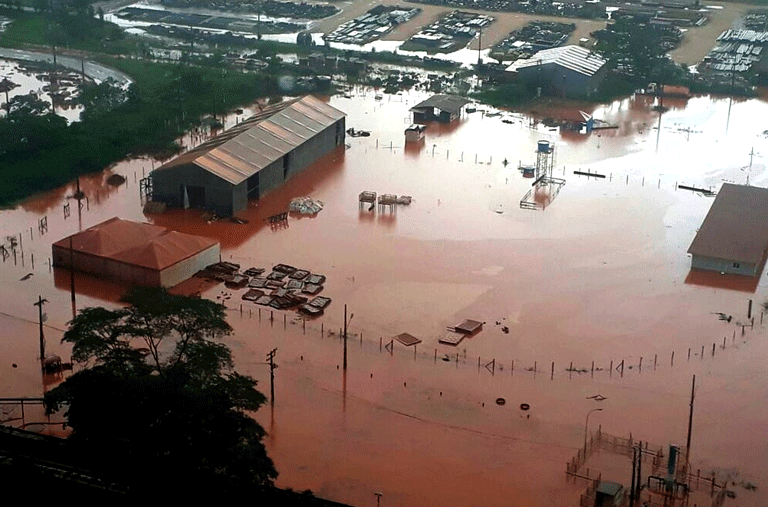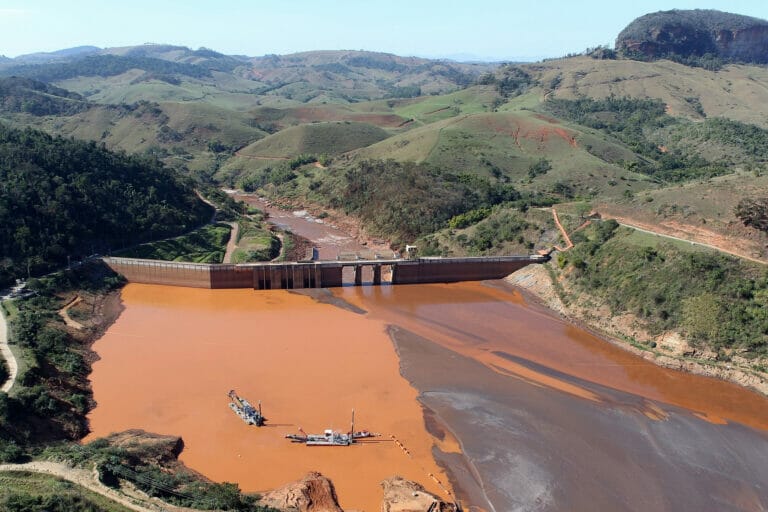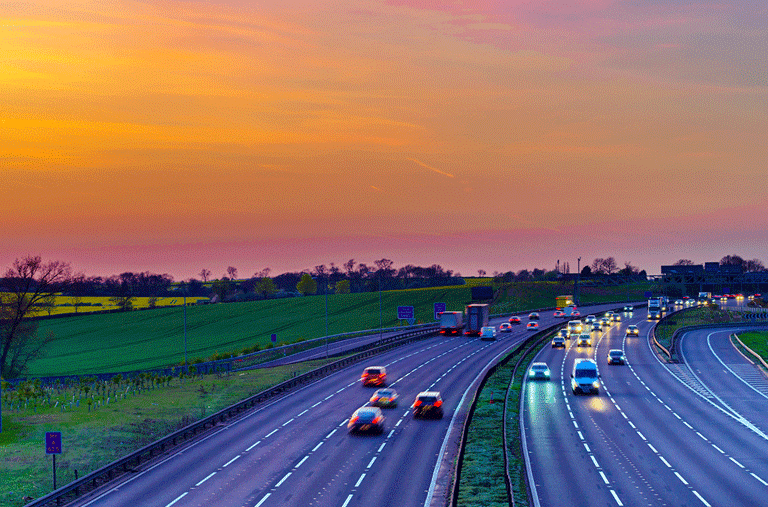Riverside communities in Barcarena have been enduring the negative effects of pollution caused by aluminum mining for many years. Now, the affected population are forcing accountability on the European multinationals that are profiting from the pollution.
Around 11,000 families from the Brazilian state of Pará are seeking compensation for damage caused to the communities of Barcarena and Abaetetuba. Victims have been exposed to toxic residues from the processing of aluminum, which can cause health problems such as increased incidences of cancer, skin disease, and stomach problems.
The Municipality of Barcarena and its neighboring communities have suffered from several serious environmental disasters in the past 20 years as a direct consequence of the activities of aluminum producers.
For example, during one disaster in 2009, a deposit overflowed, and red mud contaminated the Murucupi river. The levels of aluminum on the water were up to 73 times higher than normal and the levels of other dangerous elements on the river, such as cadmium (linked to several diseases including cancer) and copper (which can cause the death of fish) were also higher than recommended by the Brazilian National Environmental Council – CONAMA.
Similarly, on 16 and 17 February 2018, a large amount of red sludge leaked once again, polluting several springs and rivers and putting residents at risk. This disaster was investigated by the Brazilian authorities who discovered three clandestine pipes, which were directly releasing toxic waste into nature.
Pogust Goodhead represents thousands of victims seeking justice for at least ten environmental disasters at the aluminum production and mining sites belonging to Norsk Hydro. Among the claimants are a significant number of Afro-Brazilian Quilombolas.
The Quilombolas are descendants of African slaves brought to Brazil, who escaped plantations, towns, and cities, and established Quilombo settlements. Many depend on the waterways of the Amazon and its tributaries, with 1,831 officially recognized Quilombo settlements in the Amazon, and 528 of those in the state of Pará.
The effects of the 10 pollutive incidents have resulted in many of the Indigenous communities and Quilombolas suffering from poor physical health, as well as taking away their income and access to food and clean water.
The life they once had where they relied upon the rivers and wells for food, fish, water, to grow crops and rear animals, has gone and they have been left with no choice but to leave their homes.
Many claimants report hair loss, a deterioration or complete loss of sight, pain, and weaknesses in their bodies as well as anxiety and panic attacks.
In a judgment handed down by the Court of Rotterdam in November 2022, Pogust Goodhead was successful in securing the jurisdiction of the Dutch courts in the claim against Norsk Hydro.
The trial is at the merits stage. The hearing to decide the liability of the defendant companies took place on 12 March 2025. At the end of the trial, the court announced that the decision on Norsk Hydro’s liability will be released on 24 September 2025.






